 Petzlover
Petzlover Polish Hunting Dog is originated from Poland but Tenterfield Terrier is originated from Australia. Polish Hunting Dog may grow 35 cm / 14 inches higher than Tenterfield Terrier. Both Polish Hunting Dog and Tenterfield Terrier are having almost same weight. Both Polish Hunting Dog and Tenterfield Terrier has almost same life span. Polish Hunting Dog may have more litter size than Tenterfield Terrier. Both Polish Hunting Dog and Tenterfield Terrier requires Low Maintenance.
Polish Hunting Dog is originated from Poland but Tenterfield Terrier is originated from Australia. Polish Hunting Dog may grow 35 cm / 14 inches higher than Tenterfield Terrier. Both Polish Hunting Dog and Tenterfield Terrier are having almost same weight. Both Polish Hunting Dog and Tenterfield Terrier has almost same life span. Polish Hunting Dog may have more litter size than Tenterfield Terrier. Both Polish Hunting Dog and Tenterfield Terrier requires Low Maintenance.
 The Polish Hunting Dog originates from Poland and is a purebred scenthound. Hunting with scent hounds goes right back to the 13th century, being highly esteemed by Polish nobility.
The Polish Hunting Dog originates from Poland and is a purebred scenthound. Hunting with scent hounds goes right back to the 13th century, being highly esteemed by Polish nobility.
The famous Polish cynologist, Jozef Pawuslewicz hunted with Polish scent hounds and was part of the development of breeding this dog.
He wrote the first breed standard and the dog was officially registered by the Polish Cynological Association.
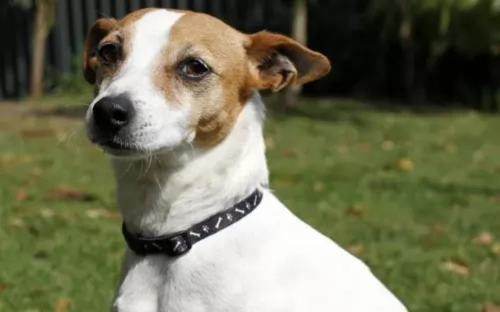 The ancestors of the Tenterfield Terrier came to Australia with the British and from them came this Australian breed. The English terriers were bred to be ratters on the ships to Australia. Today’s breed is a hardy, strong, athletic and agile dog. These first dogs were miniature Fox Terriers, bred for ratting. The miniature Fox Terrier was an established breed in the late 19th century in Australia with families and was know as a Mini Foxie. The breed became a steady presence in homes by the 1920’s.
The ancestors of the Tenterfield Terrier came to Australia with the British and from them came this Australian breed. The English terriers were bred to be ratters on the ships to Australia. Today’s breed is a hardy, strong, athletic and agile dog. These first dogs were miniature Fox Terriers, bred for ratting. The miniature Fox Terrier was an established breed in the late 19th century in Australia with families and was know as a Mini Foxie. The breed became a steady presence in homes by the 1920’s.
The breed might not have been named after the area of Tenterfield as many have guessed. Instead they may have been named after a breeder. The owner of the Tenterfield saddlery was called Tenterfield Saddler and he owned several of the breed. In 1990, Don Burke, a television personality suggested the breed be named the Tenterfield Terrier.
The Miniature Fox Terrier Club of South Australia. Now there were several clubs in Australia and a lot of disagreement about exactly what type of dog a miniature fox terrier was. Some did not think the name was legitimate, but they wanted recognition from the Australian National Kennel Club (ANKC). So, they became the Tenterfield Terrier Club of Australia in 1993. They were recognized by 2002.
Today the breed standard for the Tenterfield Terrier is different from the one for the Miniature Fox Terrier. They are now entirely separate breeds. In addition to the ANKC, the breed is recognized by the New Zealand Kennel Club but not by the AKC. It is also recognized by the American Pet Registry, Inc, the American Canine Registry and the Dog Registry of America, Inc.
 The Polish Hunting Dog is a large, strong dog standing between 50 – 66cm in height and weighing between 20 to 32kg. He is very similar to a Doberman Pinscher or a Rottweiler in looks.
The Polish Hunting Dog is a large, strong dog standing between 50 – 66cm in height and weighing between 20 to 32kg. He is very similar to a Doberman Pinscher or a Rottweiler in looks.
The dog’s coat is short and the color is usually black and tan. He is a deep chested dog with a well-proportioned head, with longish muzzle and floppy ears. The tail is long.
Well balanced and gentle, the Polish Hound is a courageous, intelligent dog, easy to train and socialize. It isn’t an aggressive dog but is wary of strangers.
He loves playing with children and is loving and kind to them. He never tires of their games. He is alert and protective and makes a great watchdog.
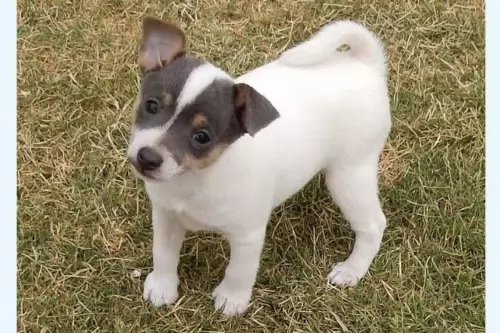 The Tenterfield Terrier is square and compact. He has a head shaped like a wedge and unusual in the terrier group. They have pricked ears and are predominantly white mixed with tan or black. They could also be tri-colored in black/tan and white or tan/liver and white. They have naturally occurring bob tails or docked tails. The nose is usually black unless the dog is liver colored, they have liver noses. The jaws are strong, and lips are tight with a strong neck.
The Tenterfield Terrier is square and compact. He has a head shaped like a wedge and unusual in the terrier group. They have pricked ears and are predominantly white mixed with tan or black. They could also be tri-colored in black/tan and white or tan/liver and white. They have naturally occurring bob tails or docked tails. The nose is usually black unless the dog is liver colored, they have liver noses. The jaws are strong, and lips are tight with a strong neck.
 Your Polish Hunting Dog is a great choice of dog as a family pet. Used as a hunting dog he will be thrilled if he lands up with a family who are active and outdoorsy types.
Your Polish Hunting Dog is a great choice of dog as a family pet. Used as a hunting dog he will be thrilled if he lands up with a family who are active and outdoorsy types.
You can always count him in when it comes to going for walks, hiking, cycling or running next to you when you go horse-riding.
The Polish Hunting dog is a stable, gentle dog and he has a whole lot of other wonderful attributes to his name. He is loving, loyal, courageous, friendly, social and companionable. And he's good looking. What a great pet this low maintenance dog makes.
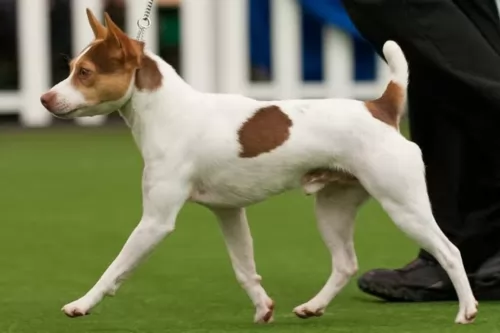 3.Adaptability – they need space even though they are small. They need a lot of exercise. They can adapt if they get another exercise. They can live in apartments and can play indoors as well as out.
3.Adaptability – they need space even though they are small. They need a lot of exercise. They can adapt if they get another exercise. They can live in apartments and can play indoors as well as out.
4.Learning ability – They are extremely intelligent, but they can be stubborn like all terriers.
 They are generally a robust breed and can easily reach up to 14 years of age with good care. There are always some common dog illnesses that you can benefit from knowing about because then you can get your pet to the vet if he appears to be under the weather.
They are generally a robust breed and can easily reach up to 14 years of age with good care. There are always some common dog illnesses that you can benefit from knowing about because then you can get your pet to the vet if he appears to be under the weather.
Active dogs are always going to be exposed to parasites, whether they be ticks, fleas or worms. Right from word go, puppies are treated for worms, but it is important to treat your dog regularly for parasites. Speak to your vet about the best products.
Heatstroke is always a risk for dogs even in areas where the weather isn’t particularly hot. People think on overcast days they can leave their dog in the car while they go in to the shops. A temperature that seems mild to a human can be like an oven to a dog. Excess heat is deadly to a dog. Signs of heatstroke include drooling, panting, anxiety, collapsing and then death.
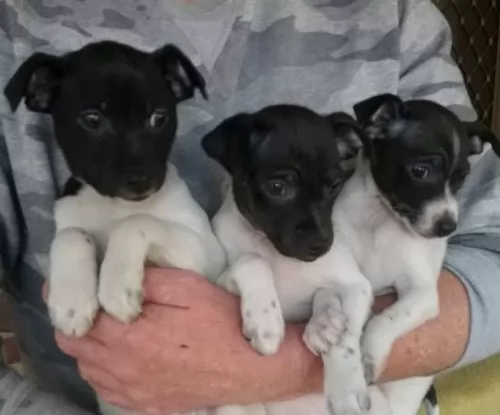 They are small in stature and because of their face they seem to have dental issues. The breed does not have a lot of health issues but deals with the same issues as many small terriers. Not all members of the breed are susceptible to these, but some are just like the Australian Terrier.
They are small in stature and because of their face they seem to have dental issues. The breed does not have a lot of health issues but deals with the same issues as many small terriers. Not all members of the breed are susceptible to these, but some are just like the Australian Terrier.
 The Polish Hunting Dog has always had an acute sense of smell, and with his long legs he has always been able to track his prey for many miles. This hunting has made him a dog that wants lots exercise and activities.
The Polish Hunting Dog has always had an acute sense of smell, and with his long legs he has always been able to track his prey for many miles. This hunting has made him a dog that wants lots exercise and activities.
As a pet, this dog will require a lot of exercise, being better suited to active, outdoor type of owners. He is therefore better suited to life in the country and large open spaces as opposed to living in the city.
Apart from brushing your pets coat twice a week, check him over for ticks if you want to avoid the spread of tick-borne diseases.
Check his ears, inside and out. Check inside his mouth for bad teeth. This is because your dog can’t tell you if he has pain, and toothache can be terrible for your pet and bad teeth can affect other body organs such as the heart and the kidneys.
Make sure your pets nails are trimmed.
Make sure your pet receives excellent food. If you’re going to be feeding your dog commercially manufactured dog food, make sure it is the best quality ones. Some of the other foods have ingredients in them which can cause your dog to get sick.
Try and give your dog some wholesome, home-made food. Boiled chicken, brown rice or pasta, carrots, sweet potato and spinach chopped up and added to the kibble will have your pet wagging his tail with delight. It will also be to his benefit to get some raw meat in from time to time.
Never leave your pet without a constant supply of fresh, cool water.
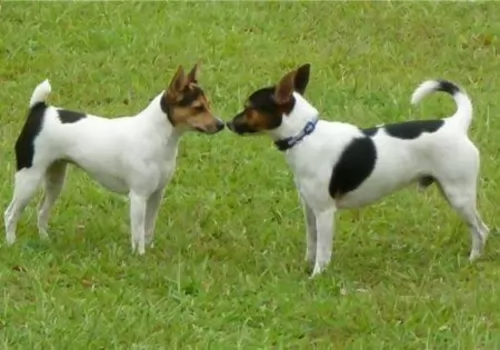 1.Feeding the puppy – Don’t overfeed but do feed high quality puppy food for small breeds and terriers.
1.Feeding the puppy – Don’t overfeed but do feed high quality puppy food for small breeds and terriers.
2.Feeding the adult – This is an active breed but don’t overfeed. Feed a high quality adult dog food for terriers or small breeds. Feed 2 times a day.
4. Games and Exercises – The breed has a high energy level and needs a lot of exercise. He is a terrier and loves to “go to ground”. Play activities that allow him to do that are best. He plays barn hunt, lure coursing and terrier specific competitions.